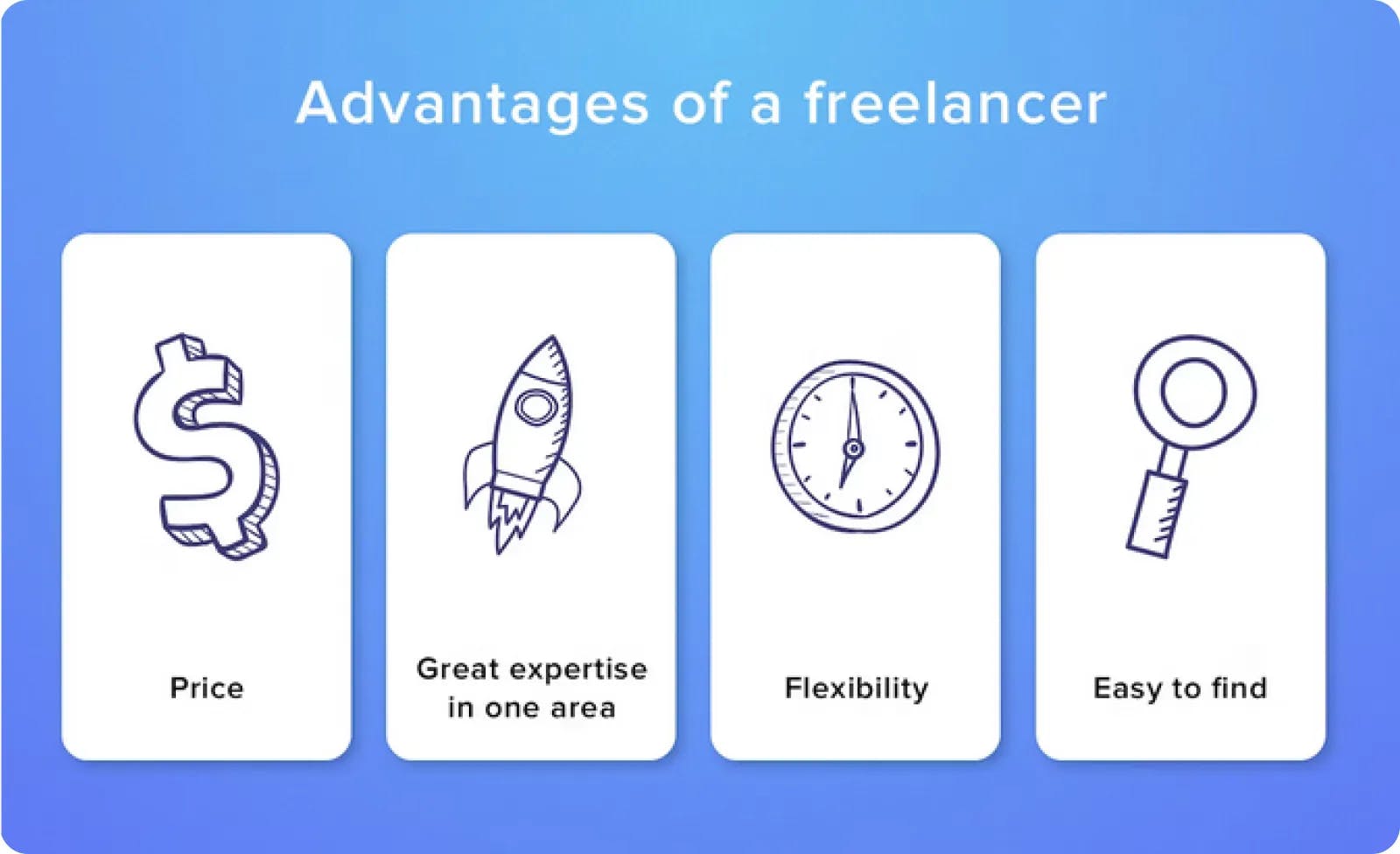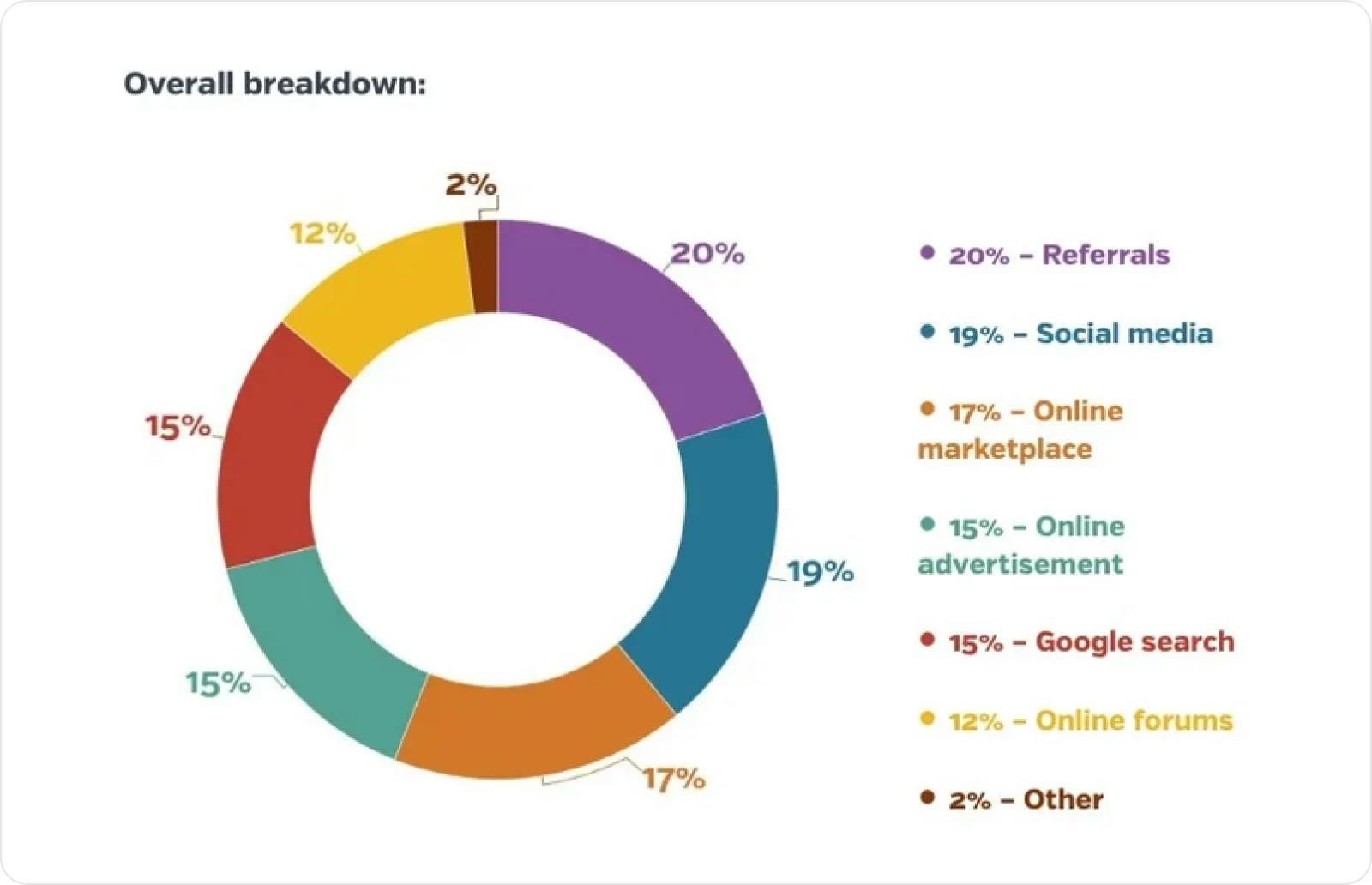Services

How to Hire Freelancers for Your Small Business
Please note: This post contains affiliate links and we may receive a commission if you make a purchase using these links.
Table of Contents:
Finding the right people to help to run your business can be a challenge, and more often, business owners are turning to freelancers to fill the gaps. You might be one of the many considering hiring freelancers but aren’t quite sure where to start. Many business owners have wondered how to hire freelancers for small business but are intimidated by how different it can be from hiring an employee.
We’ve put together this guide to hiring freelancers so that you can discover how to find the right person for your project. From using online hiring platforms to ensuring there is a contract in place, there are plenty of important tips to remember.
Put Off by the Huge Costs of Professionally Written Business Contracts?
Get Unlimited Access to 25+ Ready-to-Use Contracts.
Order Today

Know When You Need a Freelancer vs. Employee
According to one survey, over 45 percent of small businesses are using more freelancers than they did pre-pandemic. But before you even look for a small business guide to finding freelancers, you should think about whether a freelancer is who you should hire in the first place. There is quite a difference between a freelancer vs. an employee.
“An employee is someone who works for your company full-time and is paid a salary. A contractor is someone who is hired to do a specific job and is usually paid on a project basis,” explains Catherine vanVonno, the president and CEO of 20four7VA.
While that's a common setup, keep in mind that an employee can also work part-time hours or on a project basis and can be paid a salary, by the hour, per piece or on a commission.
The IRS provides information on how to determine a freelancer vs. an employee:
"In determining whether the person providing service is an employee or an independent contractor, all information that provides evidence of the degree of control and independence must be considered.
Facts that provide evidence of the degree of control and independence fall into three categories:
- Behavioral: Does the company control or have the right to control what the worker does and how the worker does his or her job?
- Financial: Are the business aspects of the worker’s job controlled by the payer? (these include things like how worker is paid, whether expenses are reimbursed, who provides tools/supplies, etc.)
- Type of Relationship: Are there written contracts or employee type benefits (i.e. pension plan, insurance, vacation pay, etc.)? Will the relationship continue and is the work performed a key aspect of the business?"
Knowing these fundamental differences will help you not only understand the tax and legal implications but also what’s more appropriate for your business needs.
A freelancer is best for short-term projects when you need specific skills, such as designing a logo or a website, writing copy or taking professional photographs. On the other hand, Nance L. Schick, an employment attorney and mediator at Third Ear Conflict Resolution, says, “If your small business needs ongoing assistance, such as administrative, bookkeeping or call answering services, there is a good chance the worker you hire will not be a freelancer but an employee."
Hire Freelancers for Their Specialist Skills
You might be wondering when the appropriate time is for finding and hiring freelancers for your business. Roderick van Vliet, Chief Risk Officer at Remote, outlines two key scenarios that should prompt a small business to start looking for freelancers.
“In the first," he says, "the workload projections indicate an impending rise in overall demand. In the second, there are tasks on the docket for which your current workforce just doesn’t have the skills."
Freelancers can help plug holes in your business in terms of growth, demand and skills, and there is a growing realization that freelancers can be the answer for many projects and tasks. Recent studies have found that 35 percent of the workforce is comprised of freelancers and that by 2030, this number will grow to 80 percent.

Use the Best Online Hiring Platforms
Finding and hiring freelancers can be a real challenge, especially if you don’t know where to start. Luckily there are now plenty of online platforms and services where you can search and hire freelancers quite easily. In fact, 71 percent of freelancers reported an increase in the amount of work they attracted online, according to data collected by Flexible, making these kinds of platforms the go-to source for hiring.
“They can help you identify freelancers with specific skill sets, and they collect reviews," Schick explains. "You can also view portfolios and other materials to help you narrow your options." While these online platforms certainly make it easier, you still must screen candidates and write a very clear project brief yourself. Be sure to consider other tips for hiring your first employees if you're a new business.
Online hiring platforms are one of the top ways small business owners find contract workers:

Some of the most popular hiring platforms include:
Be Clear on Expectations and Deliverables
One of the biggest challenges with hiring a freelancer is that it can take time for someone new to get up to speed with your business, especially when you require them to work on a specific project. However, one of the best things you can do to make the partnership run smoothly is to be clear from the onset about expectations and deliverables.
“People need to know what to expect and what’s expected of them," says Lauren LeMunyan, the founder of Spitfire Coach. "They need to know who you are, what your business is, what the deliverables are, what the tone is, what the vibe is."
This can be a big help for both you and the freelancer so that both parties are clear and honest from the beginning about what is needed. “Working with someone at a distance introduces significant complications," says van Vliet. "The lack of shared context can lead to tasks being misinterpreted or even duplicated.” This is why it can help to be forthright from the start with all your expectations, needs, and terms, for such a new and temporary partnership.
Ensure There Is a Contract in Place
It can be daunting to hire a freelancer for your small business. However, one of the key things to remember is to always have a contract in place for your work agreement to minimize the potential for things to go wrong. Whether you work through a freelance agency, online platform or directly with an individual, talking about a contract and insurance is important to set out the terms of the partnership, as well as the consequences of not meeting them.
On top of the working terms, there will also be some legal considerations depending on where your business is based. “The IRS has its criteria for classifying independent contractors," says Schick, "but there might be some additional ones used by state agencies, such as the Department of Labor and Workers Compensation Board. You will need to know the criteria for each state in which your workers reside, regardless of where your business is located."
If this seems overwhelming, you may want to engage in a legal professional or use an agency that can take care of the legal side for you.
Getting the Most from Freelancers
If your business is missing a certain skill set, it might be beneficial for you to hire a freelancer. While it can seem a daunting task to hire someone for a one-off project, it can greatly enhance your business’s capacity and skills when needed. These tips for finding and hiring freelancers will help you go about it in the best way possible to ensure it will benefit both you and the freelancer.
Put Off by the Huge Costs of Professionally Written Business Contracts?
Get Unlimited Access to 25+ Ready-to-Use Contracts.
Order Today


Jenna Scatena
Jenna Scatena is a writer and content strategist with a love for stories that have never been told before. More than a decade of working with prominent magazines and brands informs her approach to impactful storytelling. Her stories have reached more than 30 million readers, won multiple awards and been anthologized in books. Jenna's work has appeared in Conde Nast Traveler, Vogue, Marie Claire, The San Francisco, BBC and The Atlantic. She's the founder of the editorial consultancy, Lede Studio.

like what you’re reading?
Get Fresh Monthly Tips to Start & Grow Your LLC











